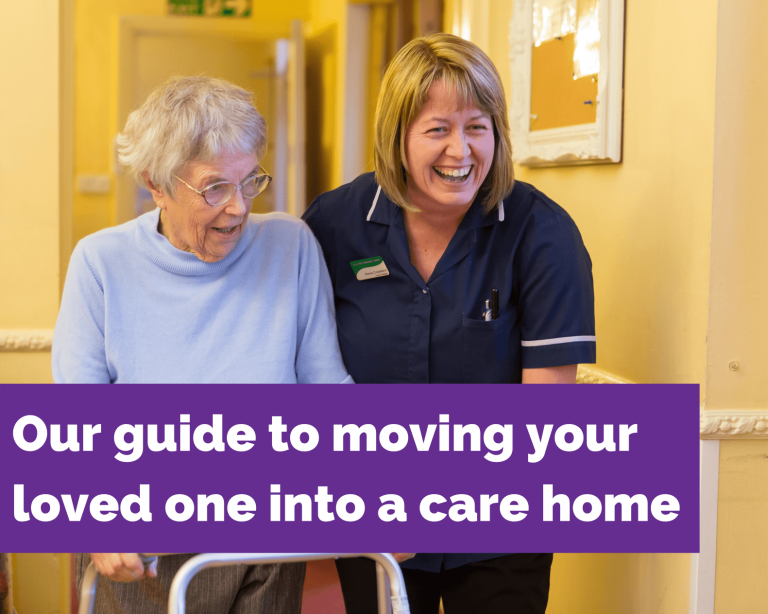The decision to move your loved one into a care home is never an easy one. However, once the signs that it’s time for a nursing home become too great to ignore, you can be left with little choice.
No matter if it’s your partner, parent, friend or family member, if your loved one needs the sort of round-the-clock care and attention you simply can’t give them, moving to a professional care facility is best for all involved.
In this post, we share the process of moving your loved one into a care home, broken down into three clear stages: before, during, and after the move.
1. Before Moving to a Care Home
As soon as possible, start researching the nursing homes and residential care facilities in your area. Look for testimonials from residents, read reviews, search the Care Quality Commission website, download brochures, and get a handle on nursing home costs.
Next, draw up a shortlist of homes you’d like to contact. Here at Fulford, you’ll be given the choice of meeting face-to-face or chatting over FaceTime (if you have COVID concerns). During our meeting, we’ll show you photos of the room and the wider facility, run you through the fees, and share our extensive activities programme.
Read More: 15 Questions to Ask Care Homes When Visiting
Once you’ve chosen a nursing home
When you’ve selected a care home for your loved one, what follows can be difficult and emotional — for you and them. Whether the move is a short-term one (for respite care) or more long-term, packing up and leaving behind the family home can be sad and stressful.
That’s why we encourage you to leave enough time to plan and come to terms with this part of the move. Read our essential packing checklist if you’re not sure what to bring, but it can be boiled down to the following:
- Clothes
- Personal care & hygiene products (i.e., shampoo, conditioner, toothbrush, etc.)
- Electronics, books, and hobbies (e.g., TV, radio, laptop, tablet, puzzles, knitting)
If you can, try and set up the room ahead of time. It’s often a good idea to decorate the room so that it’s similar to your loved one’s home. Displaying personal items, nicknacks, pictures, paintings, books, games, and other cherished belongings can trigger happy memories and help them settle quickly.
Finally, from the nursing home’s side of things, permission is requested to contact your loved one’s GP. This is to make sure all medical and mobility requirements are met before move-in day.
And if necessary, any equipment required for your loved one to live well will also be ordered at this point, including hoists or other apparatus to help them in and out of bed.
2. On Moving Day
When moving day rolls around, we try to take as much off your plate as possible. It’s important that you’re there as emotional support for your loved one as they transition to this new way of living.
To that end, transport is arranged for you. This is usually via taxi or private ambulance, depending on the situation and support needs.
Upon arrival, you’ll both be greeted by a staff member, shown around the facilities, and given time to unpack and settle into the room. Your loved one will also be encouraged to sit down for a meal and to meet the other residents, but only if they feel comfortable doing so at this early stage.
Read More: 5 Tips to Help Your Loved One Settle into A Nursing Home
3. Moving Forward — A New Beginning
With your loved one now settled into their room, it’s time to say goodbye, for the time being.
For many friends and family members, this moment can be the hardest part of the entire moving process. The reality that you’re finally leaving your loved one’s care in the hands of someone else can be tough to accept.
In many ways, it can feel like you’re grieving for a way of life that’s now in the past. This is completely natural. Just know that it’s not the end, but rather a new beginning. You get to resume a relationship (whether it’s as a parent and child, as partners, or as friends) without the worry and responsibility that comes with being a carer, first and foremost.
That’s now the role of the nursing home staff. And they’re very, very good at it.
If you’d like to learn more about Fulford Nursing Home or arrange a visit, please contact us on 01904 654 269. We’re ready to listen and happy to help.

